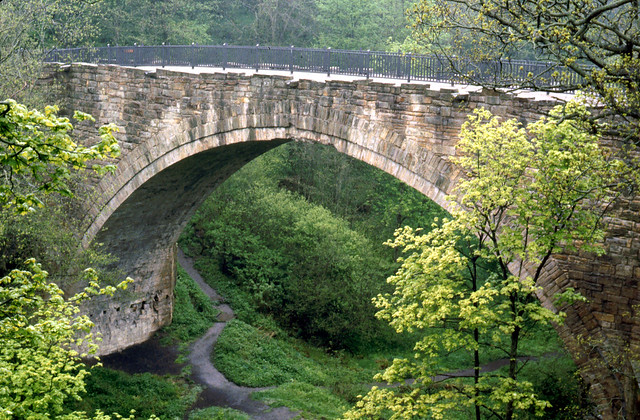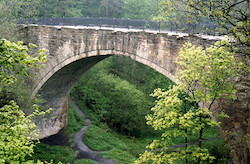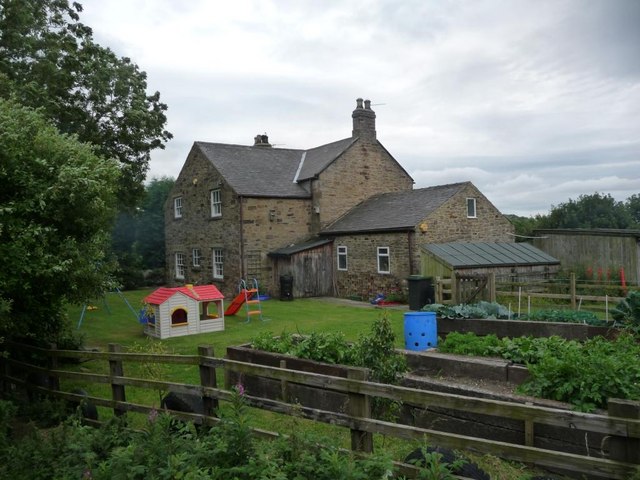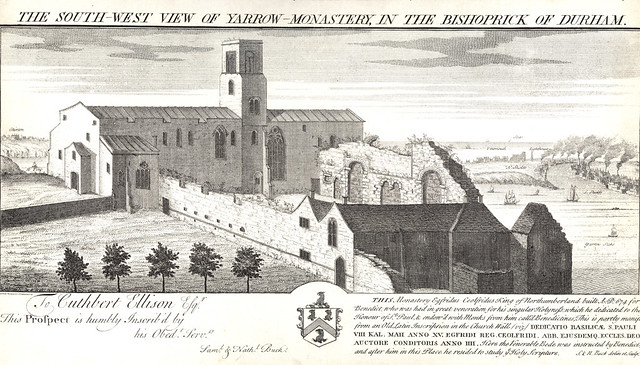230-13 Causey Arch

-
Description
The Causey Arch is a bridge near Stanley in County Durham. It is the world’s oldest surviving railway bridge. It was built in 1725-26 by stonemason Ralph Wood, funded by a conglomeration of coal-owners known as the "Grand Allies" (founded by Colonel Liddell and the Hon. Charles Montague) at a cost of £12,000. Two tracks crossed the Arch: one (the main way) to take coal to the River Tyne, and the other (the bye way) for the returning the empty wagons. Over nine hundred horse-drawn wagons crossed the arch each day using the Tanfield Railway. At the time the bridge was completed in 1726, it was the longest single span bridge in the country, a record it held for thirty years until 1756 when a bridge was built in Pontypridd, Wales. Wood was haunted by the collapse of his earlier timber bridge. Fearing that this arch would also collapse, he committed suicide by jumping from the top of it. An inscription on a sundial at the site reads "Ra. Wood, mason, 1727". Use of the Arch declined when Tanfield Colliery was destroyed by fire in 1739. The Arch was restored and reinforced in the 1980s. There are a series of scenic public paths around the area and the Causey Burn which runs underneath it. The quarry near the bridge is a popular spot for local rock climbers. Causey Burn itself flows into Beamish Burn which then flows into the River Team eventually discharging into the River Tyne. From Wikipedia, the free encyclopedia -
Owner
Sou'wester -
Source
Flickr (Flickr) -
License
What does this mean? Attribution-NonCommercial License
-
Further information
Link: https://www.flickr.com/photos/23511776@N08/3839143359/
Resource type: Image
Added by: Simon Cotterill
Last modified: 9 years, 1 month ago
Viewed: 1370 times
Picture Taken: Unknown -
Co-Curate tags






